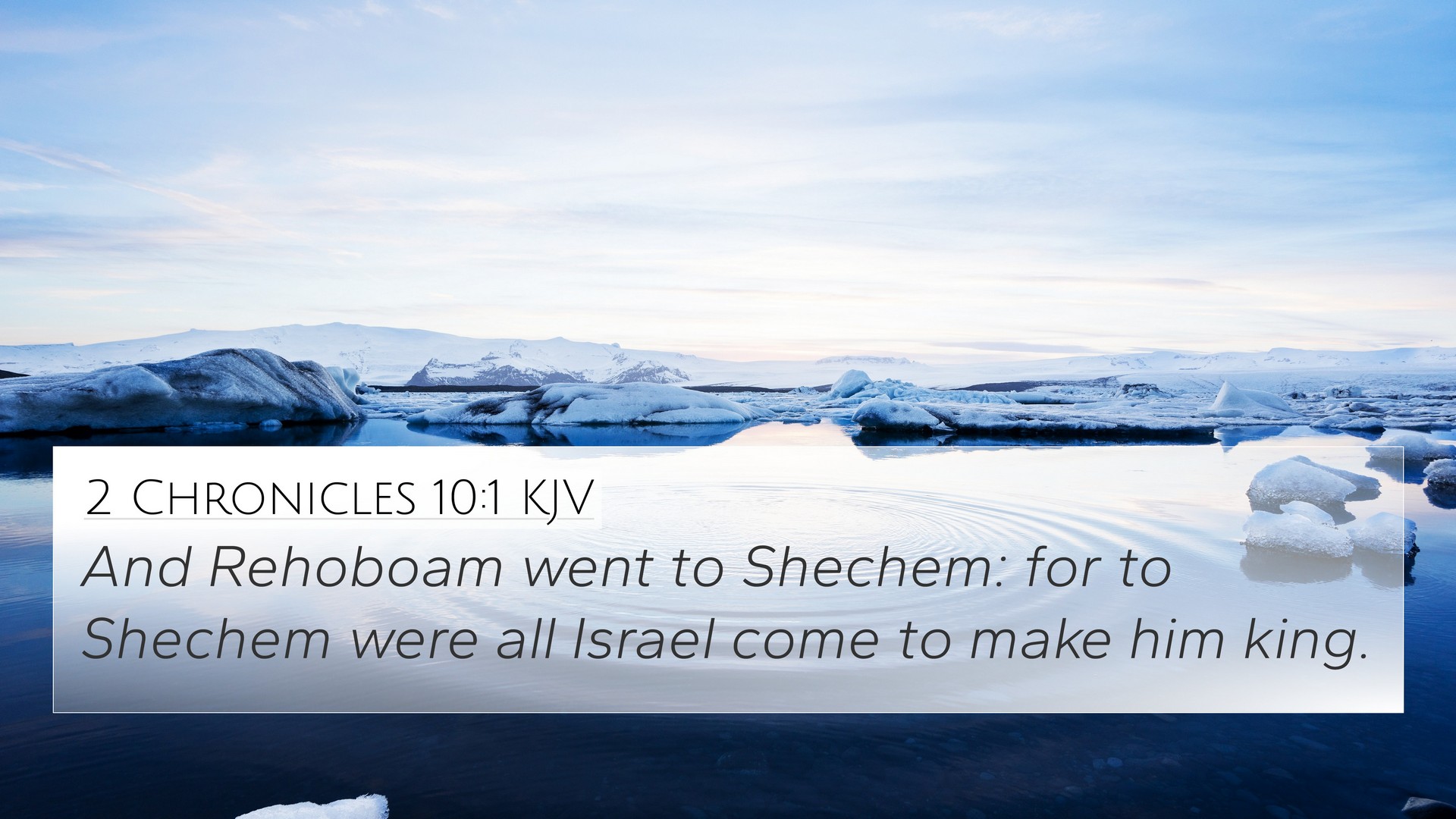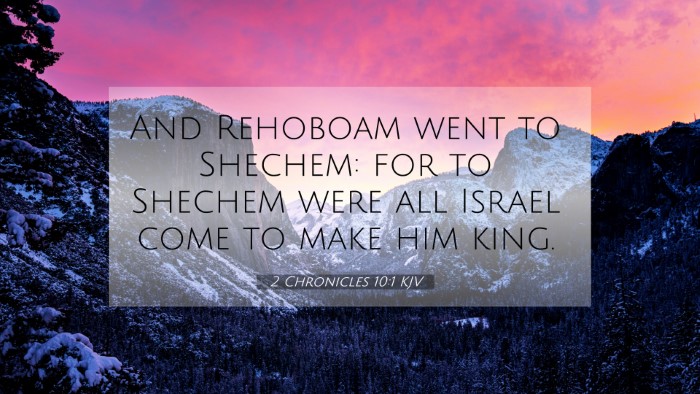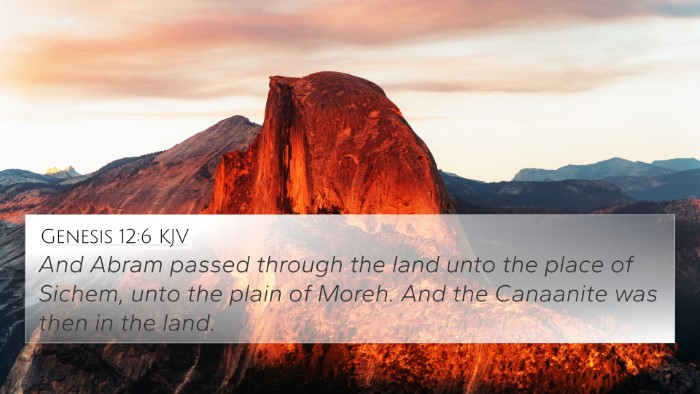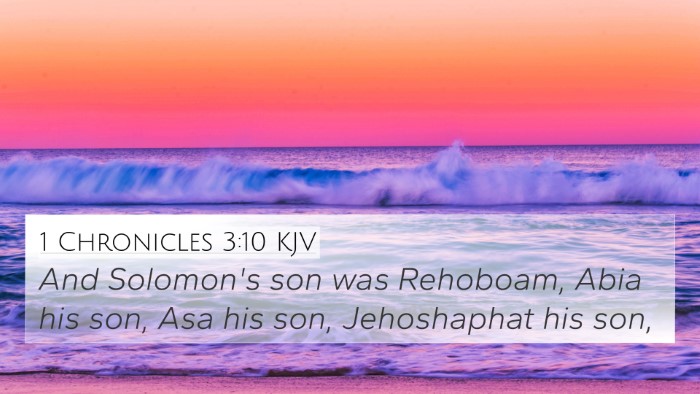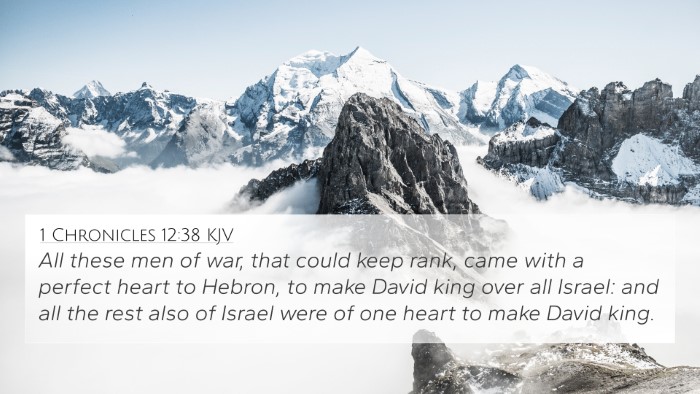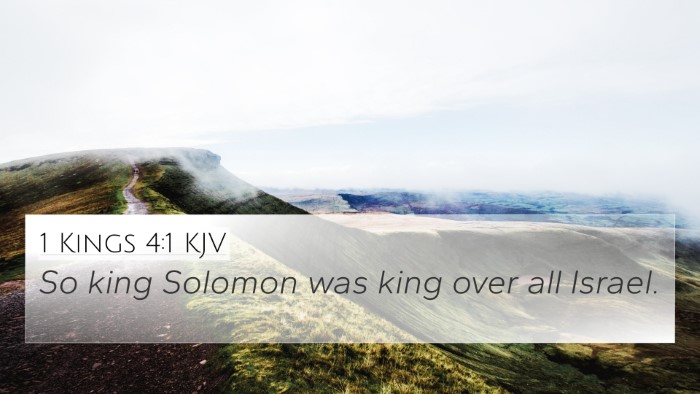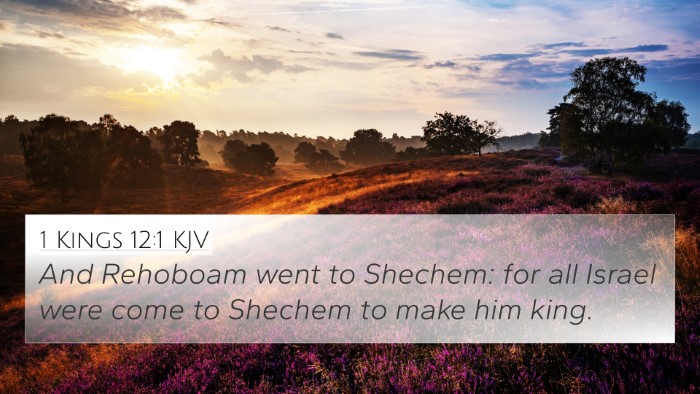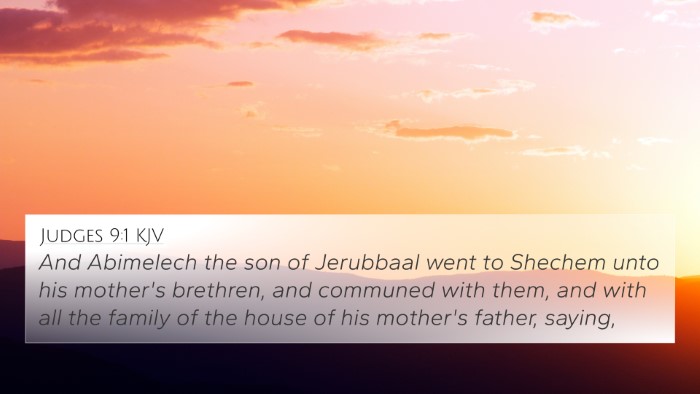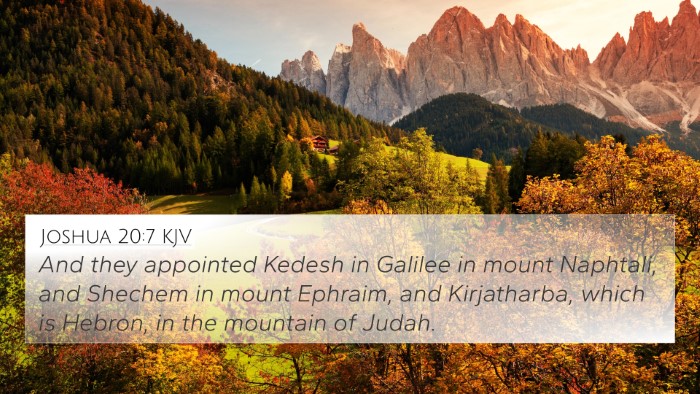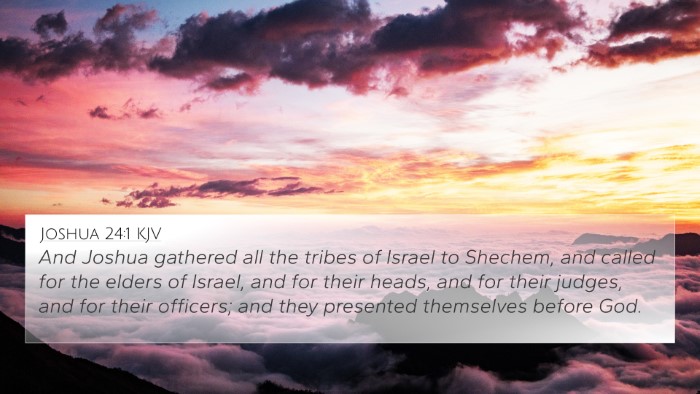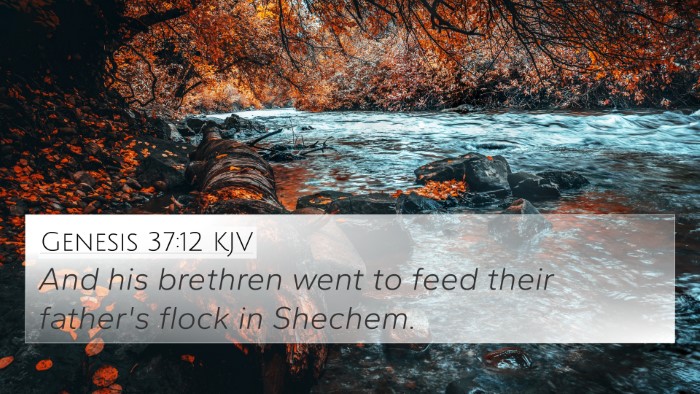Understanding 2 Chronicles 10:1
2 Chronicles 10:1 states, "And Rehoboam went to Shechem: for to Shechem were all Israel come to make him king." This verse marks a pivotal moment in the history of Israel, showcasing the transition of power from Solomon to his son Rehoboam. To grasp the full significance of this event, we can reference various public domain commentaries, including insights from Matthew Henry, Albert Barnes, and Adam Clarke.
Historical Context and Significance
The journey of Rehoboam to Shechem signifies not only a geographical movement but also represents the political and spiritual state of Israel at that time. Matthew Henry elaborates on the importance of Shechem as a location, noting it as a historic city associated with key covenantal events in Israel's history. This setting becomes a backdrop for evaluating Rehoboam’s future decisions and ministry as king.
Key Insights from Commentaries
-
Matthew Henry:
Henry emphasizes the choice of Shechem as the location for the coronation. It was a city that once held great significance, where the blessings and curses were pronounced (see Joshua 8:33). This underscores the seriousness of Rehoboam's responsibilities as the new king.
-
Albert Barnes:
Barnes connects this verse with the broader theme of leadership, emphasizing that the gathering of Israel represents a united front seeking to confer legitimacy upon Rehoboam’s kingship. This action foretells the challenges he will face from the northern tribes.
-
Adam Clarke:
Clarke provides a deeper analysis of the cultural implications of going to Shechem, suggesting that the tribes' convening signifies their desire for stability and direction under a new king.
Bible Verse Cross-References
To deepen our understanding of 2 Chronicles 10:1, we can explore several related Bible verses that provide insight into the themes of leadership, governance, and the history of Israel:
- 1 Kings 12:1 - This parallel account discusses the same event, highlighting the division of the kingdom.
- 2 Samuel 5:3 - This passage describes the anointing of David as king over all Israel.
- Joshua 24:1 - Joshua’s gathering of the tribes at Shechem offers a historical foundation for this moment.
- 1 Kings 11:43 - This verse notes the death of Solomon, setting the stage for Rehoboam's ascension.
- Isaiah 1:10 - Prophetic sentiments regarding Israel's leadership can be interlinked with the expectations of the people toward their new ruler.
- Proverbs 11:14 - Wisdom in leadership is addressed, paralleling the wisdom Rehoboam would need.
- Psalm 78:70-72 - A reflection on God’s choice of David as king, suggesting a divine perspective that influences the expectations of Rehoboam.
Thematic Bible Verse Connections
Cross-referencing biblical texts enriches our understanding of 2 Chronicles 10:1. Below, we identify thematic connections:
- Leadership and Authority: 1 Peter 5:2 emphasizes the qualities expected of leaders who guide others.
- Unity and Division: Ephesians 4:3 encourages unity in the Spirit, which stands in contrast to the division Rehoboam would soon encounter.
- Wisdom in Governance: James 1:5 reminds leaders to seek wisdom from God in their decisions.
- Challenges of Leadership: Matthew 20:26-28 illustrates the servant leadership model contrasted with Rehoboam's choices.
Detailed Cross-Reference Analysis
Utilizing tools for Bible cross-referencing can enhance our study experience. By employing a Bible concordance or Bible cross-reference guide, one can identify additional verses that parallel the themes in 2 Chronicles 10:1.
For example, exploring cross-references pertaining to leadership in both the Old and New Testaments reveals how God's chosen leaders often faced significant trials, particularly in understanding their relationship to the people they governed.
Cross-Referencing Biblical Themes
When examining the themes of governance and leadership within the Bible's narrative, we find that:
- The transitional period from David's leadership to Solomon to Rehoboam illustrates a broader thematic struggle between divine authority and human choice.
- The call for unity among God's people in the face of impending divisions reflects ongoing discussions in contemporary Christian thought regarding church unity.
- Rehoboam's decision-making process, as seen in the subsequent verses, mirrors the challenges faced by leaders in understanding the needs of their constituents.
Conclusion
2 Chronicles 10:1 serves as a critical juncture in Israeli history, highlighting the complexities surrounding Rehoboam's ascent to the throne and inviting deeper reflection on leadership. Cross-referencing with other related scripture can provide a more complete picture, facilitating a comprehensive Bible verse analysis that enhances both personal study and collective understanding.
